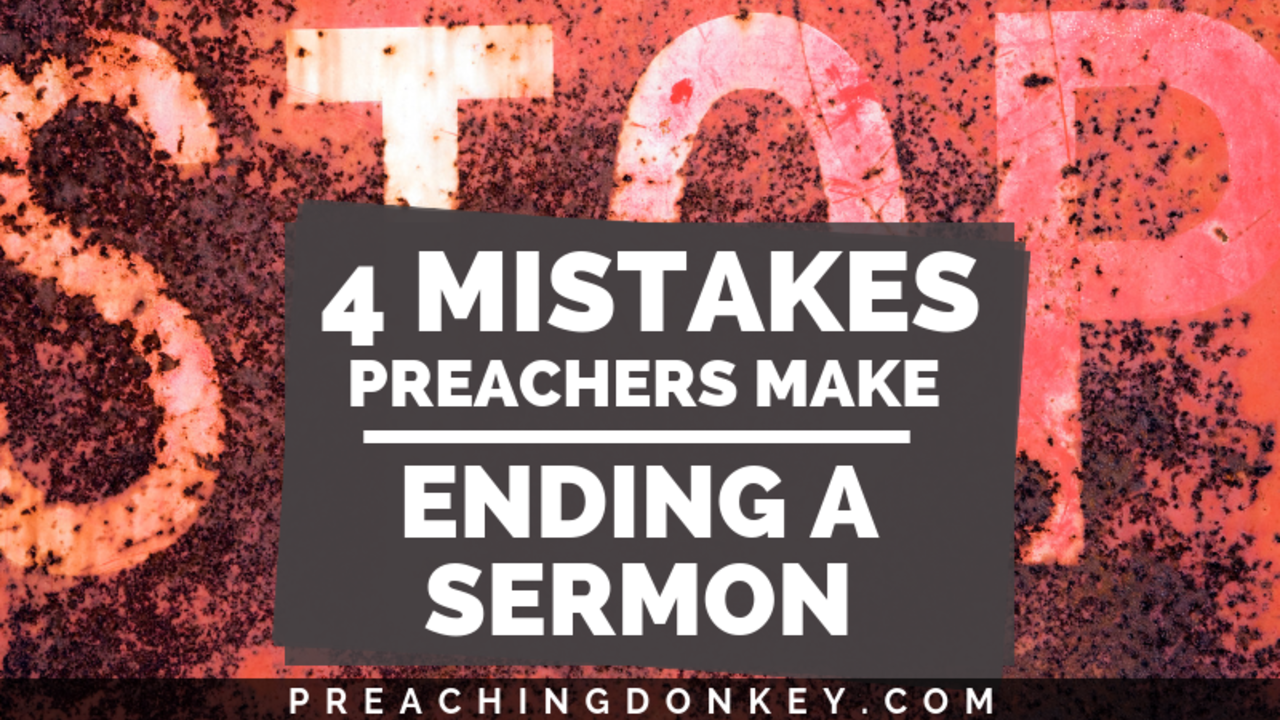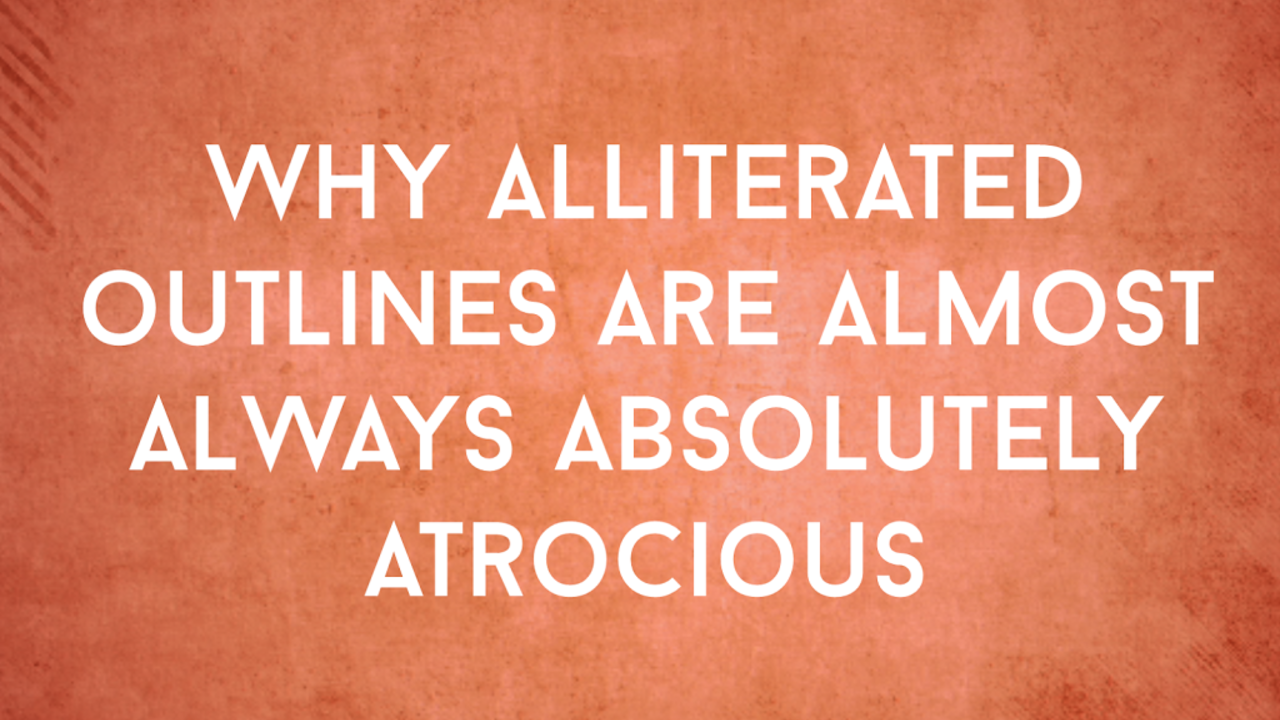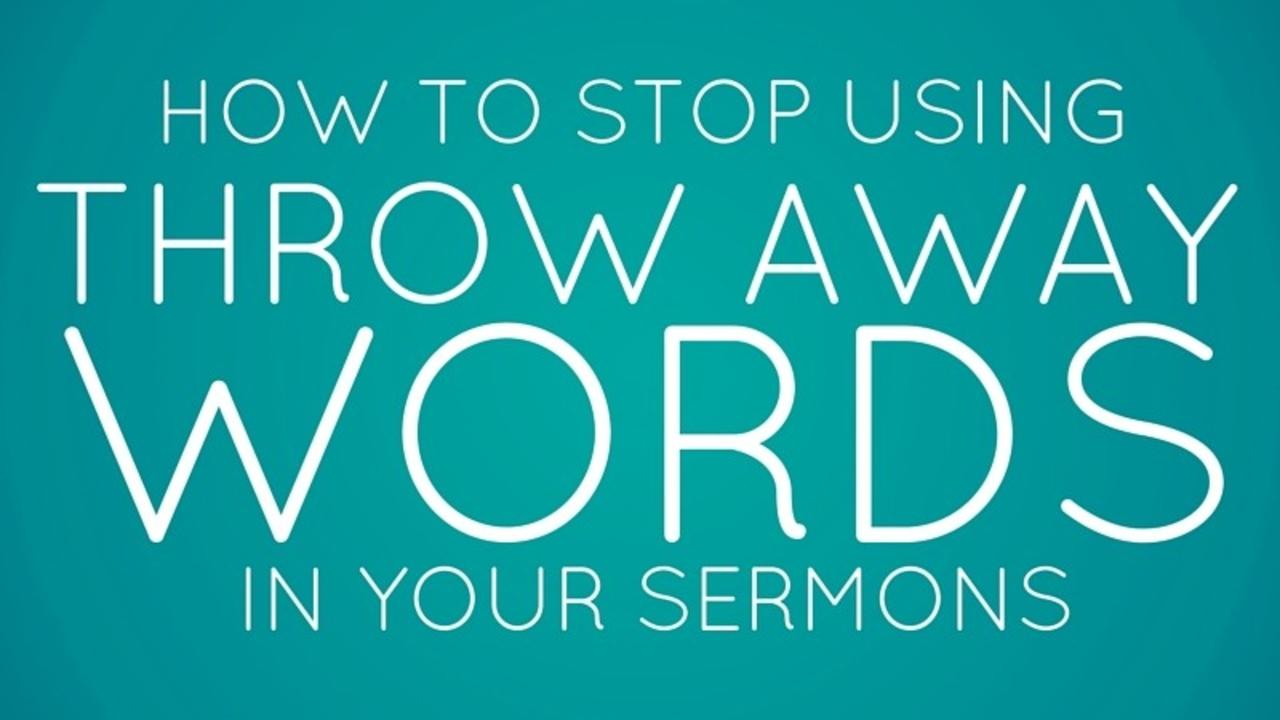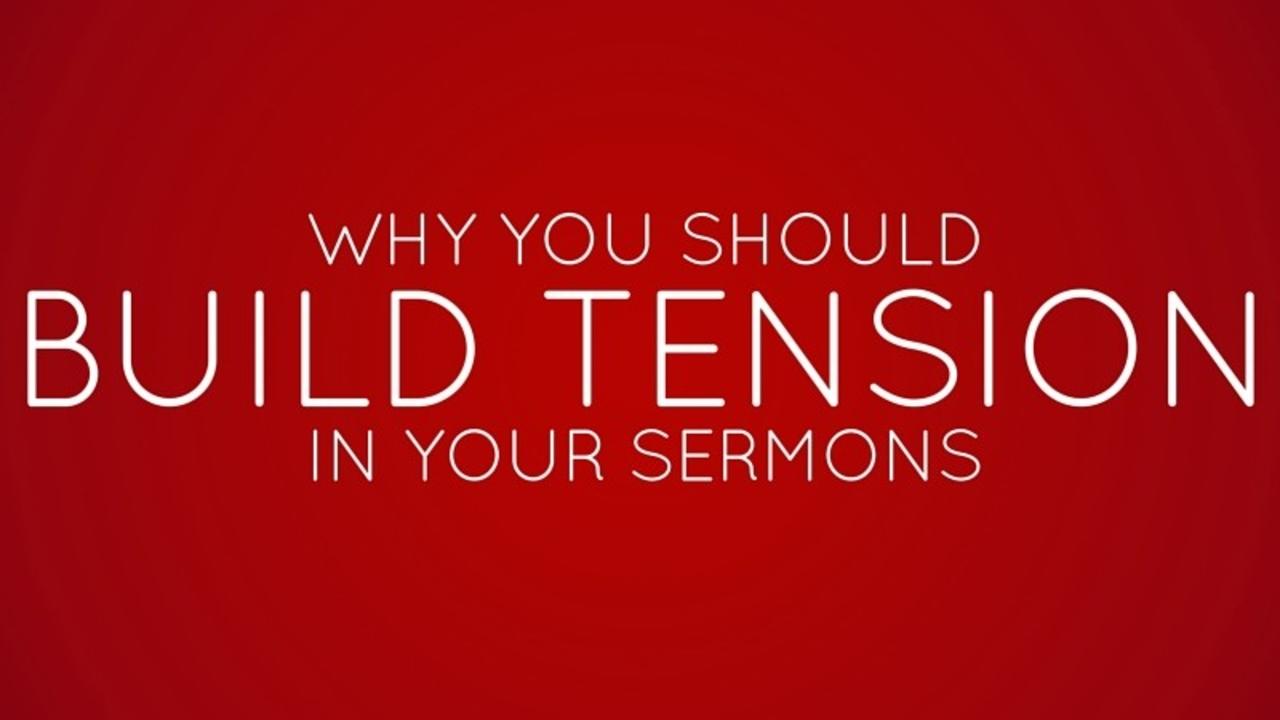4 Mistakes Preachers Make When Ending a Sermon

How you begin your sermon is vital. It can mean the difference between your listeners checking out or deciding to pay close attention. The things you say at the beginning of a sermon are what your listeners subconsciously use to build a framework for your whole message. If your thoughts are murky and unclear, you’re laying an unstable foundation.
But the way you end a sermon is just as important. If the closing of your message is disorganized and unclear, then your listeners will walk away feeling the same way about your message – that it was disorganized and unclear. I’ve written extensively about the important role you play as the communicator in setting the tone for how your audience perceives your message.
When I first began preaching I would prepare relentlessly for the first five minutes of my sermon. I wanted my opening thoughts to be perfect. I would prepare the opening remarks and the body of the sermon with careful detail. But when it came to the end of...
Why Alliterated Outlines are Almost Always Absolutely Atrocious

Some preachers alliterate their outlines making all their points begin with the same letter. Sometimes just the main points are alliterated, other times the sub-points are alliterated, still other times the sub-sub-points are alliterated. At one point it was taught as a great way to organize your message and really get your listeners to remember. To make it stick, alliterate! was the mantra. But we don’t see as much alliteration anymore. But does it make a difference? Alliterate or not, does it matter?
Here’s why alliterated outlines are almost always absolutely atrocious:
1. They make your message seem contrived. Alliterated outlines can appear contrived and forced. Like the preacher just needed a matching, neat outline so he grabbed whatever word fit the others regardless of whether it was actually the best word that communicated the meaning he wanted. Like this:
God wants three things from you:
1. Surrender2. Service3....
Why Great Preachers have a Balance of Intensity and Relief

Gibson could have written the movie where it begins intense, remains intense for the entire film and ends with great intensity. The problem with that approach is that viewers can only take so much. There has to be a balance of intensity and relief.
This same principle applies to preaching. I once preached a sermon on how to change. The sermon was intense because it dealt with the fallen human condition....
Why Shorter Sermons Are Almost Always Better

Shorter sermons are almost always better. You might say, “Well, Matt Chandler speaks for an hour and he has hundreds of thousands of people listening to him!” Okay, sure, but he’s engaging, insightful and a captivating communicator. Not everybody can do what Matt Chandler does. But even if you can do all of those things for an hour, it doesn’t mean you should. Few public speakers can keep an audience’s attention for that long. Few should even try. Here are three reasons why shorter sermons are almost always better:
1. You don’t need to say everything in a single sermon.
We often think back on a sermon and ask ourselves: Did I say all the words that I needed to say? The better question is: Did they hear what they needed to hear so they can do something with it? Part of the reason you may speak for a long time is you think you need to say everything…
Everything that you could possibly point out that is in a...
How to Stop Using Throw Away Words in Sermons

Pauses are great. They can add emphasis and give more weight to your point. A well-placed pause is a powerful public speaking tool that you should know how to use.
But the wonderful effect of a pause is destroyed by a terrible public speaking mistake preachers make: the audible pause. What’s an audible pause?
Well, um, it’s uh, um, I think it’s uh… (Sorry, just had to do that).
An audible pause is when you fill in the gaps of your speech with throw away words like “um” “uh” “you know” “like” and others.
These throw away words are a huge distraction, and every public speaker must deal with them if they are going to stand out. To audibly pause is natural. To quit audibly pausing is a lot of work, but it’s what separates the preachers from the donkeys. Here’s how to stop using throw away words in sermons:
1. Rehearse your sermons out loud.
This is a vital step to...
5 Easy Steps to Put People to Sleep With Your Preaching

There’s nothing like a good snoozer of a sermon. We’ve all sat through them. We’ve all given them at one point or another. But what does it take to preach a sermon that makes your listeners fall sound asleep? What does it take to defy everyone’s ability to pay attention? If you aspire to give boring sermons that help your people catch up on rest while you preach, here are five easy steps:
1. Don’t adequately prepare.
The first step to get everyone shutting their eyes is to not prepare. This part is easy. You want to stand up and not have anything of substance to say. You want to just repeat some things you already know and have already said so they will check out and go to sleep.
2. Have no clear focus.
You need to be totally unclear about the direction you want to take the sermon. Your people will pick up on this and decide it’s not worth listening because you haven’t figured it out yet. Follow every rabbit trail in your head so that your...
Why You Should Build Tension in Your Sermons

As a preacher, it’s easy to focus on your content and not really consider if your listeners are ready to hear it.
You’ve been studying your material all week, and you’re totally energized by it. It’s all you’ve thought about for days. You are so excited to finally share these thoughts that are bursting out of you.
But your listeners aren’t there yet. They walked into church with everything on their minds except your sermon. They have nowhere near the same level of enthusiasm about your topic that you have.
That’s the way it works. You care. They probably don’t.
So what can you do?
One of the most basic theories of communication is Aristotle’s’ ethos, pathos, logos. This theory suggests that the best public speaking has all three:
Ethos, a credible speaker
Pathos, a message that moves people at a visceral level
Logos, a message that makes sense
In other words, your listeners are subconsciously requiring three things out of you...
How to Preach Like You’re Having a Conversation With Everyone in the Room
The best sermons are conversations. You want to make everyone feel as if you are having a conversation with them. Like they’re the only person in the room. Like you’re sitting at a table with with them and discussing a problem, a concern, a big thing God wants them to do.
Two primary points of feedback I’ve heard recently about my sermons:
You come across very personable when you preach.
You have a conversational preaching style.
In most cases people explain how my approach makes them feel. They say that it is disarming because they can relate to me like I’m a real person – not a disconnected preacher guy. Because I seem authentic, they trust me and want to listen.
I understand that not everyone takes a conversational approach, and I’m not saying conversational style is the only way, but I am suggesting it’s worth a try. Here is a way to experiment with a conversational approach:
1. When you prepare, think about the obvious questions or...


